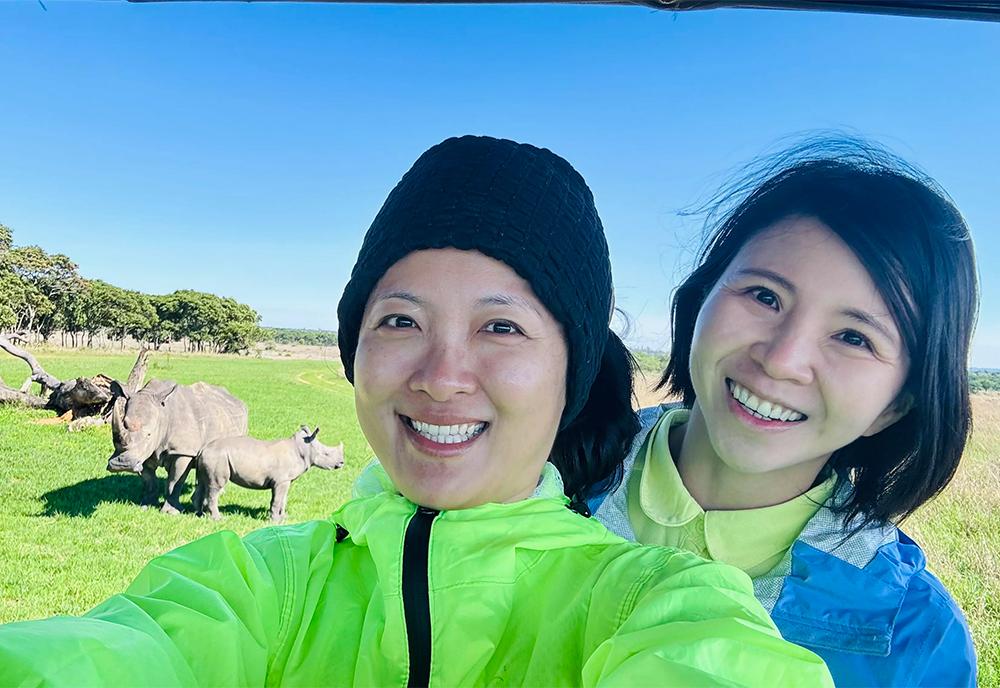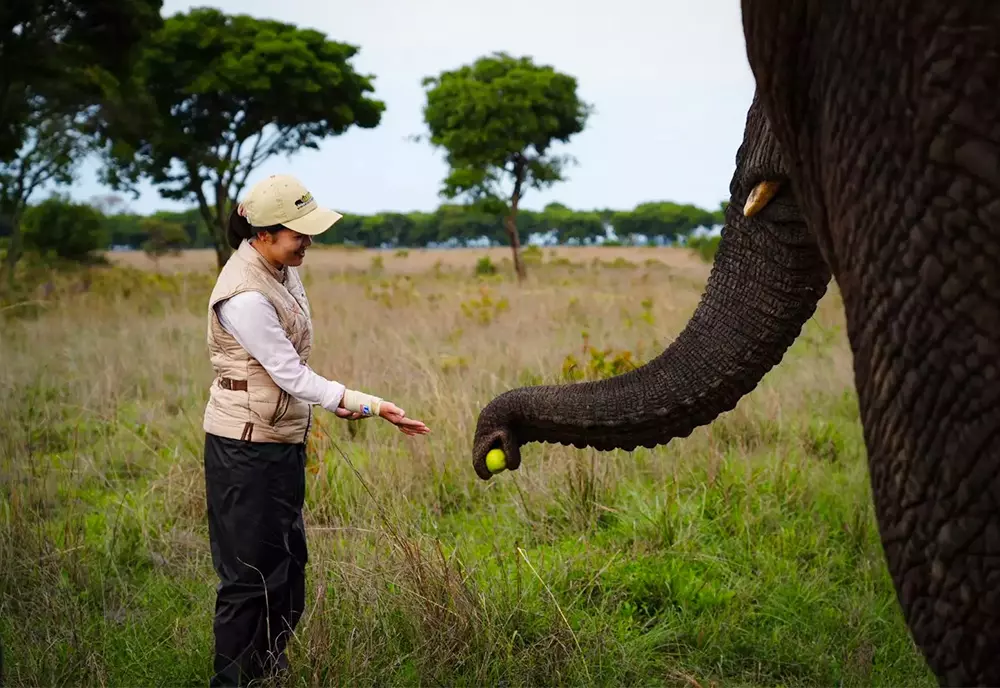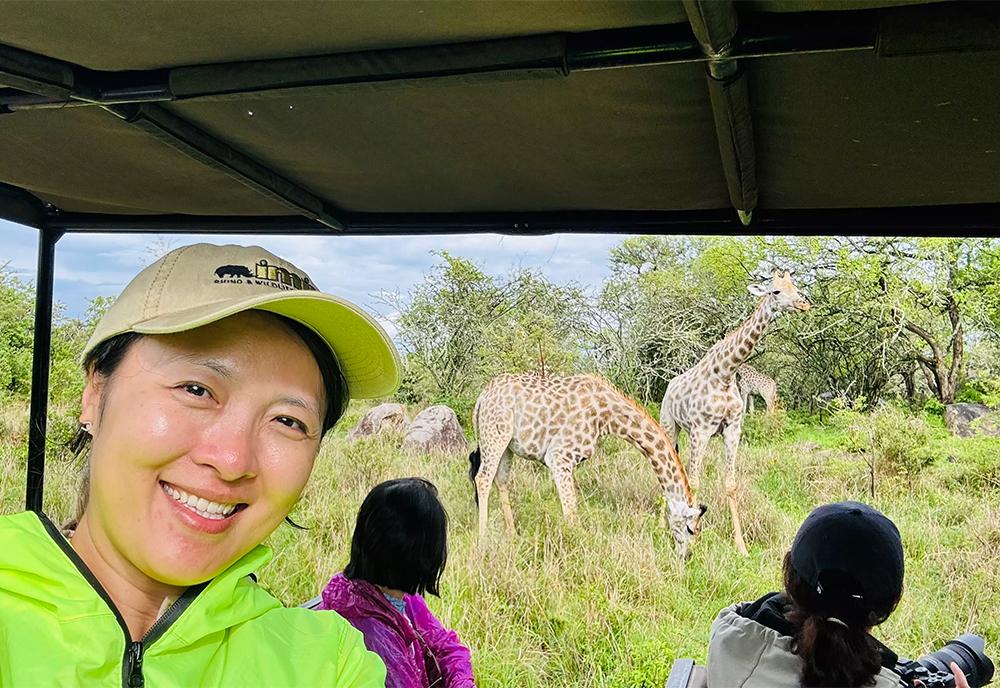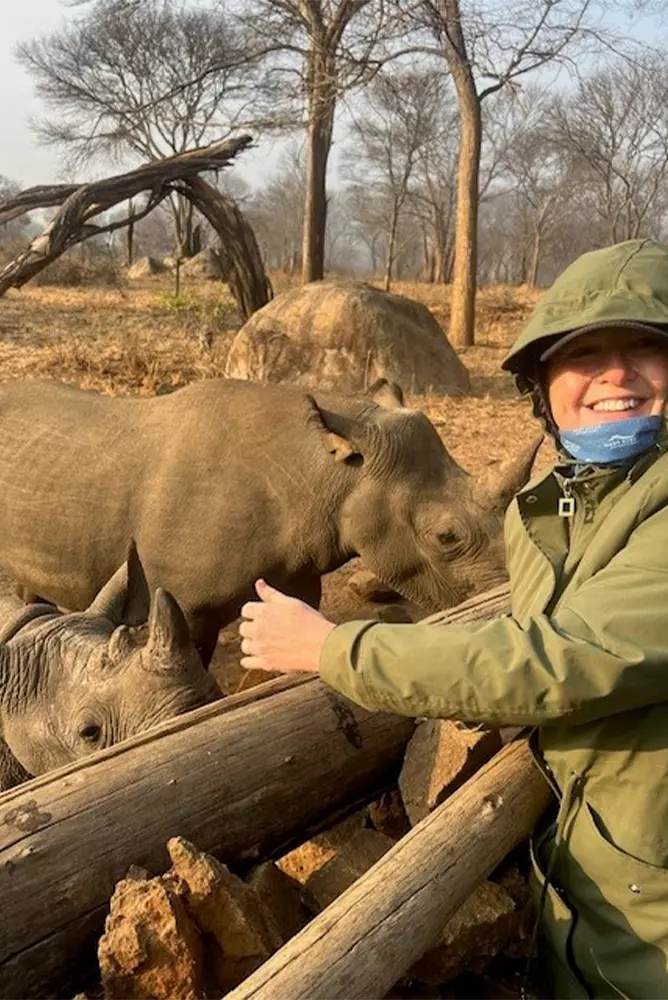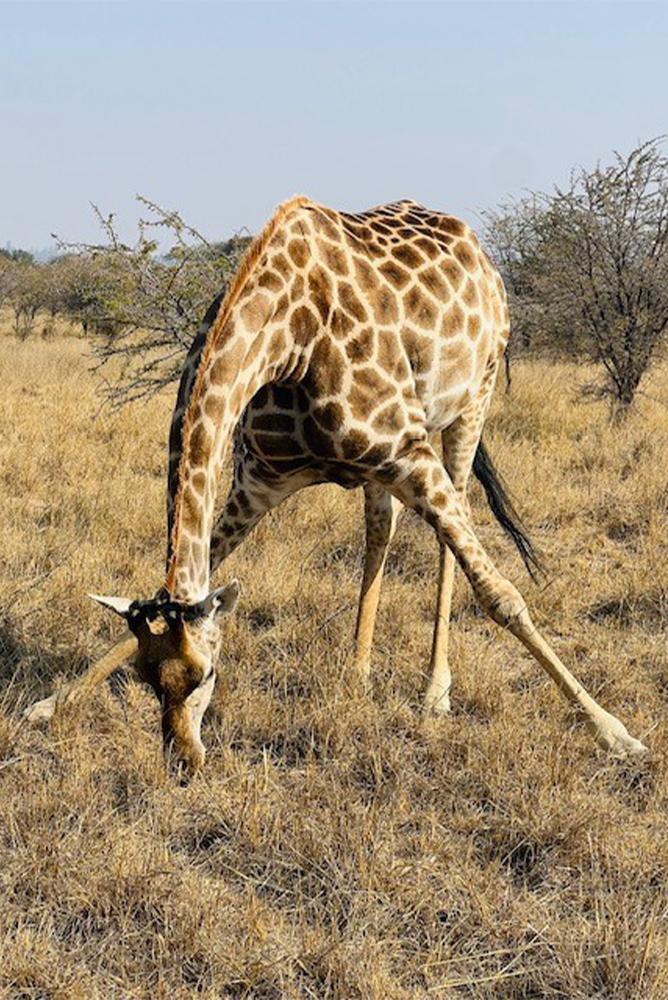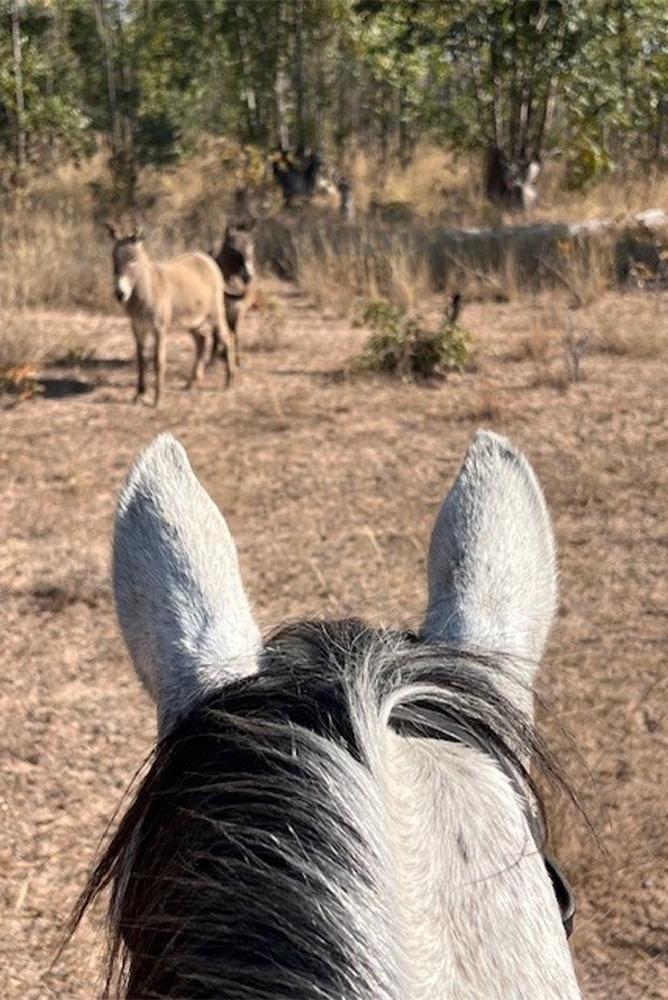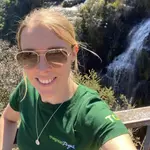

Rhino & Elephant Equestrian Project
Explore a beautiful African game reserve on horseback as you work to conserve rhinos and elephants in Zimbabwe.
Speak To A Travel Expert
Activities
To participate in this project, you’ll need to be an experienced and confident rider, as you’ll be riding three to four hours per day, five days a week.
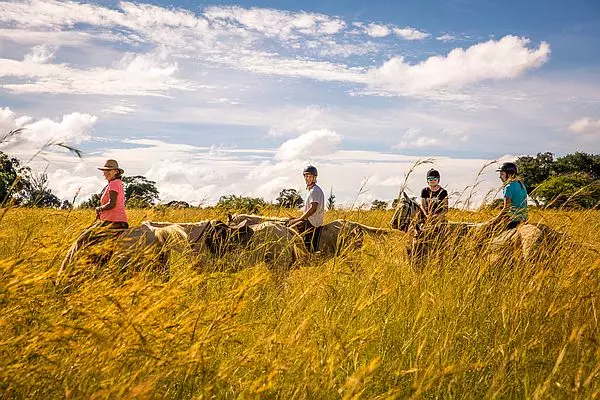
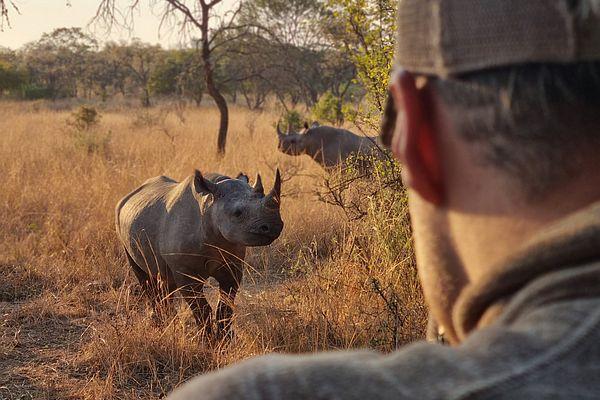
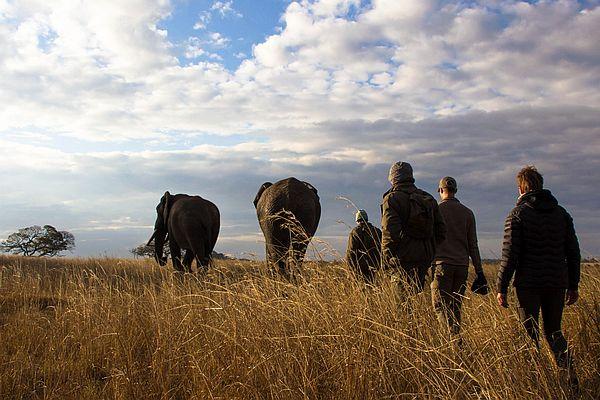

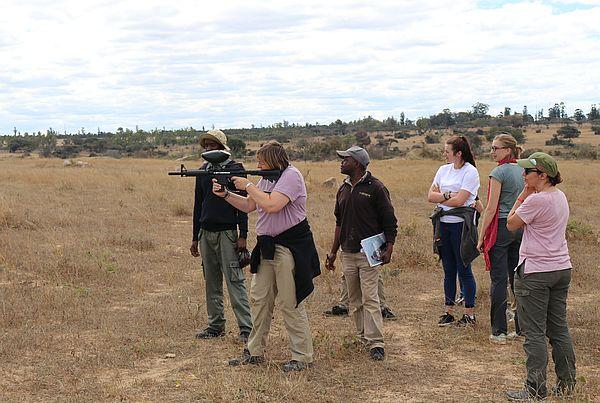
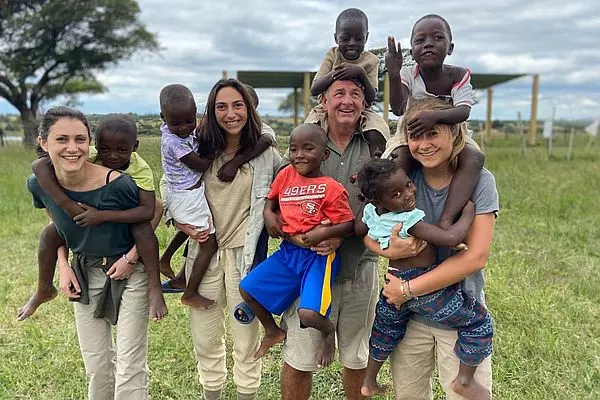

Itinerary
Durations & Prices
Accommodation
Accommodation
Whilst on the reserve, you'll be living alongside 3 other volunteers from this equestrian project, as well as up to 12 other volunteers from the Rhino and Elephant Conservation Project. You will be staying in a beautiful, thatched house which contains five large bedrooms typically shared on a same-sex basis, and bathrooms with western-style toilets and hot water.
Please note: Wi-Fi is not available at the project site, but with a large swimming pool and neighbouring lake, your free time will make for a perfect digital detox in the serenity of the African bush!
Meals & Beverages
Three meals a day will be provided for you on this project, all served buffet-style, not including packed lunches taken out in the field. Water, juice, tea and coffee are also available throughout the day. On Sundays, the chefs have a day off, but ingredients are supplied in the kitchen for you to prepare your own meals. Vegetarian and limited vegan options are available upon request and there is a small onsite bar at the volunteer house offering a variety of snacks, as well as both alcoholic and soft drinks, at an additional fee.
Project Details
When is the best time to volunteer?
The activities on the reserve run year-round, with the exception of working with school children, which is term-time specific. This is an active reserve so you'll see wildlife no matter when you choose to visit, however, the weather may impact your chosen time to visit.
Summer (November-March) – Referred to as the wet season, this is the rainiest time of the year. Rain may fall in the afternoons and may even continue for a few days; however, more rain usually makes for more activity on the reserve. Vegetation improves food sources, so you may have a better chance of spotting wildlife grazing. Temperatures throughout the summer will still be warm, around 32°C/90°F at their peak.
Winter (April-October) – Alternatively, the dry season will see minimal rainfall, and the reserve’s animals will likely congregate around waterholes and rivers when other water sources dry up. In fact, it’s not uncommon to catch sight of one elephant, Mac, as he searches for water near the volunteer house! Temperatures during this period are much cooler and tend not often exceed 10°C/50°F in the mornings and 28°C/82°F in the afternoons. Night times are even colder, so we advise that you pack warm clothing in the event of an evening game drive!
Getting There
You will need to fly into and arrive at Harare International Airport by 1pm on your project start date, as the private transfer will depart from the airport shortly after this time. On your final day, your flight will need to depart after 12pm to provide enough time for your transfer back to the airport. Outside of these times, private airport transfers can be arranged though they will incur an additional fee of US$120.
Visa Requirements
Most travellers, including those from the UK, USA, Australia, Canada, and EU countries, can apply and pay for a Tourist/Holiday e-Visa online before travelling. While some nationalities may obtain a visa on arrival, arranging your visa in advance will save time upon arrival in Harare. Visa fees vary depending on whether you choose a single- or multiple-entry visa. We recommend applying for your e-Visa at least three weeks before your trip.
Please be aware that it is the responsibility of every volunteer to ensure they obtain the correct visa to enter Zimbabwe and take part. If you’re unsure of your visa requirements, we advise you to contact your nearest Zimbabwean embassy at least two months before travel.
Fitness & Skills
To join this project, you must be an experienced and confident rider. You should have several years of experience riding different horses regularly and be confidently able to carry out a rising trot and canter. You’ll be expected to handle a horse on your own and be able to get out of challenging situations should they arise. If the project team feel your riding ability does not meet the required standard, you may be asked to switch to the Rhino & Elephant Conservation Project.
The horses are unable to carry weight exceeding 80kg, and you should be of a moderate fitness level to carry out the other activities on the reserve. Aside from being an experienced rider, there are no other specific skills needed for this project; we just ask that you come along with an open mind and willingness to get involved.
Vaccinations
There are no specific vaccinations required to join this project; therefore, we recommend consulting your GP/doctor or a travel clinic and following their advice on vaccinations for travel. You can also find helpful advice and information on the Travel Health Pro website.
Gallery
Reviews
Regretfully, 7 days was too short! Now I can understand why some volunteers return again and again! As I joined the equine project, our work seemed more fun than the manual hard work other volunteers were doing. Nonetheless, we did get to experience hands on work too. No amount of description is sufficient except to be there to experience it all! :D The Great Projects has been really helpful too to ensure every step of our trip was well arranged. Thanks for coordinating the trip for me! Looking forward to experiencing other projects too with my family.
Trip of a lifetime! The accommodation, food, staff, horses and other amazing animals were incredible, and the other volunteers were great too. Volunteering gave us a feeling of giving back and being more submerged into the local culture. Highlights included horse riding with Judy (the owner) whose passion for the project is infectious. Not to mention horse riding close to rhinos, buffalo, giraffes, zebra, antelope and elephants was AMAZING! Hand feeding and patting rhinos and elephants were also experiences over and above our expectations. Whilst the animals on this large property are habituated, they are still wild so definitely make sure you are reasonably balanced in the saddle...because if a rhino decides to charge (and it can happen), you don't want to fall off! Oh and I nearly forgot, take some USD and shout yourself a massage overlooking the stunning lake.... $15 for 30 minutes - worth every penny! We also went for a kayak a few times around the beautiful lake and saw elephants and antelope on the other side. Whilst they sell some beer, ciders and sweet wine, if you like a dry white, suggest you pack your own. Amazing place and highly recommend!
What's Included
- Accommodation
- Airport transfers
- Three meals per day
- Tea, coffee, water and juice
- Laundry service
- A donation to the project
What's Not Included
- Flights
- Visas
- Travel insurance




























